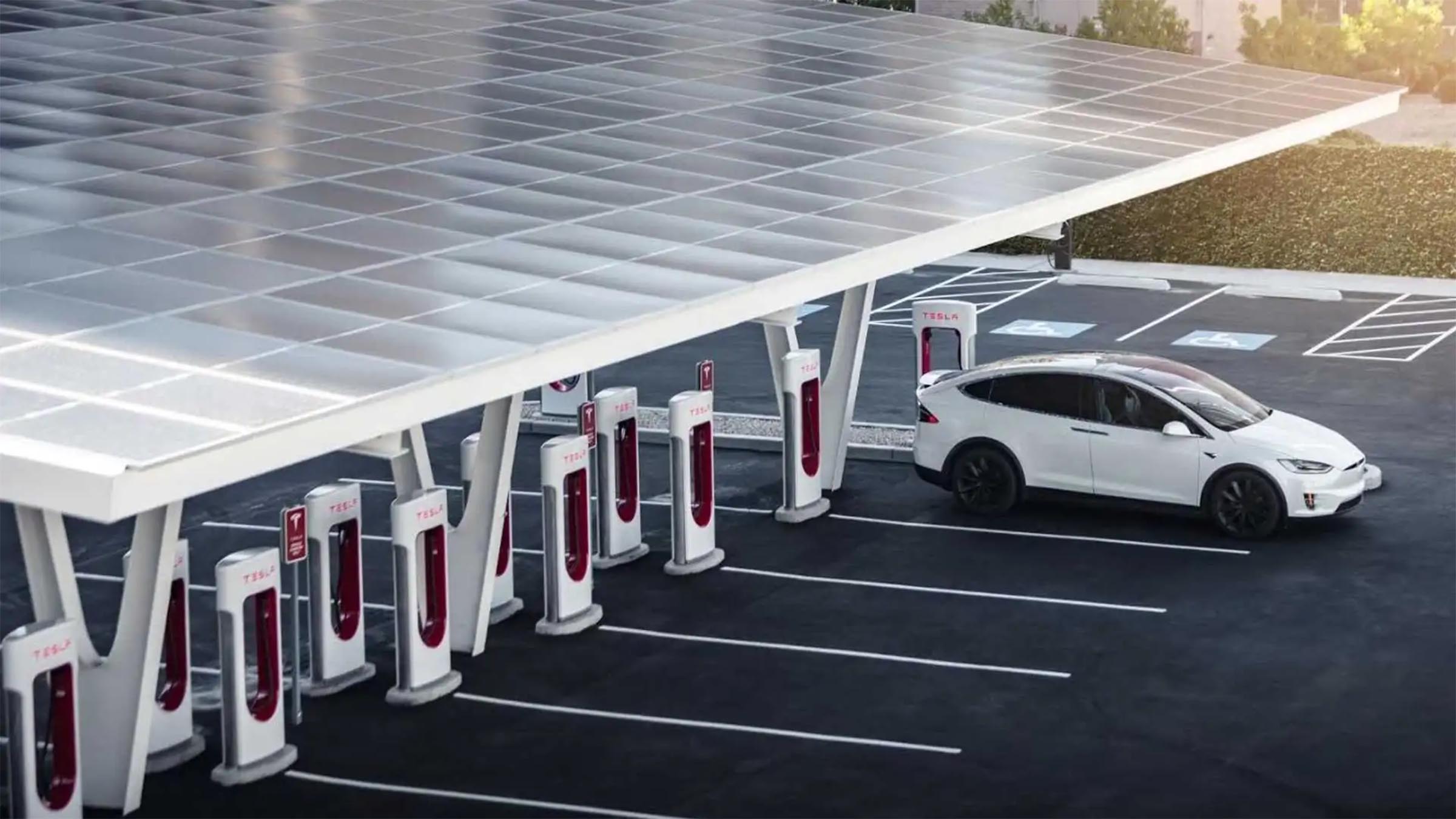A group of U.S. Senate Republicans proposed new legislation that would charge anyone who buys a new electric vehicle a $1,000 fee at the time of purchase. The stated goal is to off-set the lost federal gas tax revenue used to help maintain America’s roads and bridges. However, is it fair or one more attack by the party on EVs.
The fee would equate to 10 years of gas taxes collected by the federal government. The current gas tax is 18.4 cents per gallon and is fed into the Highway Trust Fund to help with infrastructure maintenance. The government hasn’t raised the tax since 1993, fearing a public backlash from raising gas prices that are already viewed as too high by most Americans.
Since 2008, more than $275 billion — including $118 billion from the 2021 infrastructure law — has been shifted from the general fund to pay for road repairs, Reuters reported.
The issue of getting EV owners to “pay their fair share” for maintenance has been debated for years. On the surface, Fischer’s Fair Sharing of Highways and Roads for Electric Vehicles (Fair SHARE) Act seems to address it in a reasonable manner.
However, further examination suggests that it may not be so “fair” and could be a coordinated effort on the part of some Republicans to clamp down on the alternative fuels industry and other “green” regulations.
The scale lies

Ensuring that EV owners pay their “fair share” of taxes for road maintenance has been a long-debated topic.
“EVs can weigh up to three times as much as gas-powered cars, creating more wear and tear on our roads and bridges. It’s only fair that they pay into the Highway Trust Fund just like other cars do. The Fair SHARE Act will require EVs to pay their fair share for the upkeep of America’s infrastructure,” Fischer said in the release announcing the proposed legislation.
Three times? Well, that depends upon the vehicle. A typical small car weighs in around 2,500 pounds. The best-selling subcompact vehicle in the U.S. is the Nissan Versa with a curb weight averaging about 2,650 pounds (the lightest is 2,599 pounds) while the heaviest is 2,717 pounds).
Conversely, the curb weight of the GMC Hummer EV pickup averages just a bit under 9,100 pounds. It sold 13,993 Hummer EV pickups and SUVs in 2024. Nissan sold 42,589 Versas last year. So in the most extreme case, yes … an EV can weigh as much as 3.4 times as much as a gas-powered vehicle. Neither are big sellers and 9,000-pound EV sells at about a fourth of the rate.
When we take the difference between the average new vehicle sold in the U.S. and compare it to the average EV, you get much more realistic view. The weight difference is less than 20% — and the roads the vehicles drive on are rated to handle loads as much as 75,000 pounds.
More EV News
- Forget Tax Breaks, Republicans Want $1,000 Tax on Electric Vehicles
- Electric Mustang Mach-E Outsells Ford’s Classic Coupe — and Is Anyone Really Surprised?
- Trump Vows to Reverse Biden EV Policies
Not all the same

Public chargers could route taxes collected to the Highway Trust Fund, which is administered by the Federal Highway Administration to fix U.S. roads.
The FAIR Act posits that the average person pays between $87 and $100 annually in gas taxes. Obviously that’s determined by the amount of driving a person does. However, one could drive a Prius a pay much less because of its fuel efficiency. Conversely, one could drive a Chevrolet Suburban and, if driven the same amount, that person would pay much more.
However, the gas tax is imperfect because if the Suburban owner drives substantially less — or not on roads covered by the federal government’s scope — they would pay less. EV owners subject to the $1,000 fee must pay no matter how much or little they drive.
Taxes, taxes, taxes
Using gas taxes to repair and maintain America’s roadways has been an accepted practice at the federal level; however, at the state level many have already implemented ways to make EV owners pay for their use of all roads.

Transportation Secretary Sean Duffy hasn’t endorsed the FAIR Act, but agrees ensuring EV owners pay an equitable share for road repair is on his agenda.
More than 30 states charge EV owners an extra fee to register their vehicles. Those fees range from $50 to nearly $220 annually. Also, EV owners using public chargers for their vehicles are charged taxes when using them.
Also, when charging their vehicle — or vehicles — at home, it’s cheaper to charge, but one thing they cannot escape: taxes. Anyone using the resources of an electric utility pays taxes for every ion that comes screaming into their homes: whether it powers the outlet your television is plugged into or the 240-amp line your home charging unit is wired into.
“What we should also be talking about is we are getting double taxed. We are paying taxes on the electricity we buy. Just like what a gasoline tax would be,” wrote one poster in a Rivian forum about the topic.
Unfair and unequal
The bottom line is that charging the $1,000 fee at the time of purchase is punitive. Gas- and diesel-powered vehicle owners aren’t required to pay in advance. They get to pay as they go and or use the roads.
While ensuring EV owners are paying their fair share for maintenance is a reasonable position, forcing them to pay speculatively, on top of the extra fees they pay in most parts of the U.S. has many owners feeling like they’re being discriminated against.
One Rivian owned pointed out that in his state he pays $225 in additional registration fees. He would have to buy 500 gallons of gas to hit that number for the gas tax.
“From the nerdy point of view, this means I would have had to charge north of 16,700 kWh on my Rivian to ‘break even’; I actually charged 3,400 kWh in 2024,” the poster wrote.
“From the mileage point of view, overall consumption on my R1S for 2024 was 1.8 mi/kWh. That is 60 MPGe, which means that I would have to drive 30k miles in a given year to once again ‘break even’; I actually drove 6,300 miles in 2024.”








This article brings to mind: “Lies, damned lies, and statistics.”
Fact: EVs do not pay a highway tax.
Correct.
Also Fact: the typical EV isn’t 3X the weight of a comparable gas model.
Also Fact: the typical gas model’s federal excise tax is $87 to $100, not $1,000. With hybrids the norm is $50 or less.
Also Fact: many states already have EV surcharges and they usually average more than the lost gas taxes.